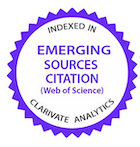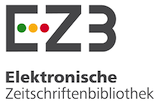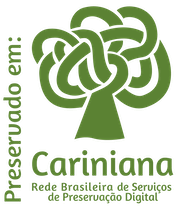Potencial terapêutico de formulações otológicas compostas por Triticum aestivum, Bixa orellana, Tris-EDTA e N-acetilcisteína no tratamento de otite externa canina
DOI:
https://doi.org/10.1590/1809-6891v25e-78543EResumo
Objetivou-se avaliar a eficiência de três soluções otológicas a base de extratos vegetais e adjuvantes no tratamento da otite externa canina. Foram desenvolvidas três diferentes soluções oto lógicas 1003 composta por extratos etanólicos de Triticum aestivum, Bixa orellana e Tris-EDTA,1004 composta por extratos etanólicos de Triticum aestivum, Bixa orellana e n-acetilcisteína, 1005 composta por Triticum aestivum, Bixa orellana, n-acetilcisteína e Tris-EDTA, como grupo controle foi utilizado pro duto comercial. Para o estudo foram selecionados 64 cães diagnosticados com otite externa, os quais foram divididos aleatoriamente em quatro grupos e todos os animais foram tratados durante sete dias. Durante o exame otológico realizado nos dias D0, D3 e D7, foram considerados os sinais clínicos de otalgia, prurido, odor, eritema e quantidade de cerúmen. Foram coletadas amostras para cultura bacteriana, fúngica e citologia antes e após os tratamentos. Após a avaliação, cada sinal clínico recebeu uma pontuação em escore de 0 a 3, o qual 0 era considerado ausente e 3 a forma mais grave de aparecimento, a partir desta pontuação foi gerado um somatório por animal e por grupo durante cada dia de avaliação. No final do tratamento, todos compostos avaliados foram eficazes para a redução dos sinais clínicos e microrganismos envolvidos em casos de otite externa canina.
Downloads
Referências
Bajwa J. Canine otitis externa - Treatment and complications. The Canadian veterinary journal = La revue veterinaire Canadienne. 2019; 60 (1):97-99. Available at: https://www.ncbi.nlm.nih.gov/pmc/articles/PMC6294027/
» https://www.ncbi.nlm.nih.gov/pmc/articles/PMC6294027/
Marconi C. Pseudomonas aeruginosa in otitis externa in companion animals: resistance to antimicrobials. Master's Dissertation in Integrated Veterinary Medicine, University of Lisbon, Lisbon, 47p. 2019. Available at: http://hdl.handle.net/10400.5/17738
» http://hdl.handle.net/10400.5/17738
Hlinica KA. Dermatology of Small Animals: Color Atlas and Therapeutic Guide. 3rd ed. Rio de Janeiro: Elsevier, 2012. 632p.
Saridomichelakis MN, Farmaki R, Leontides LS, Koutinas AF. Aetiology of canine otitis externa: a retrospective study of 100 cases. Veterinary Dermatology. 2007; 18 (5):341-347. Available at: https://doi.org/10.1111/j.1365-3164.2007.00619.x
» https://doi.org/10.1111/j.1365-3164.2007.00619.x
Budach SC, Mueller RS. Reproducibility of a semiquantitative method to assess cutaneous cytology. Veterinary Dermatology. 2012; 23(5):426-e80. Available at: https://doi.org/10.1111/j.1365-3164.2012.01075.x
» https://doi.org/10.1111/j.1365-3164.2012.01075.x
Capella SO, Krug F, Tillmann MT, Vianna R, Aranha BC, Chaves FC, Freitag RA, Bruhn FRP, Fernandes CG, Nobre MO. Therapeutic potential of drugs with active ingredients of Bixa orellana L. and Triticum aestivum in the treatment of thermal lesions. Research, Society and Development. 2020; 9(3):29. Available at: https://doi.org/10.33448/rsdv9i3.2379
» https://doi.org/10.33448/rsdv9i3.2379
Fernandes C, Hijano A, Lima C, Fontoura EG, Schramm RC, Félix SR, Nobre MO. A randomized, double-blind, placebo-controlled study to assess the effect of an aqueous extract of Triticum aestivum on canine outer ear inflammation. Pesquisa Veterinária Brasileira. 2017; 11(37):1270-1274. Available at: https://doi.org/10.1590/S0100-736X2017001100012
» https://doi.org/10.1590/S0100-736X2017001100012
Capella S, Tillmann MT, Félix AOC, Fontoura EG, Fernandes CG, Freitag RA, Santos MAZ, Félix SR, Nobre MO. Healing potential of Bixa orellana L. in cutaneous wounds: a study in an experimental model. Arquivo Brasileiro de Medicina Veterinária e Zootecnia. 2016; 68(1):104-112. Available at: https://doi.org/10.1590/1678-4162-8374
» https://doi.org/10.1590/1678-4162-8374
Brito RSA, Capella SO, Hoffmann JF, Freitag RA, Pascoti Brum FR, Nascente PS, Costa Schramm R, Vianna R, Jorge S, Nobre MO. Evaluation of plant extracts in pharmaceutical formulations in the treatment of canine otitis externa. Medicina Veterinária (UFRPE). 2021; 15(4):332-339. Available at: https://doi.org/10.26605/medvet-v15n4-3601
» https://doi.org/10.26605/medvet-v15n4-3601
Poma-Castillo L, Espinoza-Poma M, Mauricio F. Antifungal activity of ethanol-extracted Bixa orellana (L) (Achiote) on Candida albicans, at six different concentrations. The Journal of Contemporary Dental Practice. 2019; 20(10):1159-1163. Available at: https://pubmed.ncbi.nlm.nih.gov/31883250/
» https://pubmed.ncbi.nlm.nih.gov/31883250/
Hussain MS, Singh M, Kumar B, Tewari D, Mansoor S, Ganesh N. Antimicrobial activity in ethanolic extracts of Bixa orellana L., Simarouba glauca DC and Ocimum tenuiflorum L. collected from JNCH herbal garden. World Journal of Pharmaceutical Research. 2020; 9(4):650-663. Available at: https://doi.org/10.20959/wjpr20204-16654
» https://doi.org/10.20959/wjpr20204-16654
Chan WY, Khazandi M, Hickey EE, Page SW, Trott DJ, Hill PB. In vitro antimicrobial activity of seven adjuvants against common pathogens associated with canine otitis externa. Veterinary Dermatology. 2019; 30(2):133-138. Available at: https://doi.org/10.1111/vde.12712
Downloads
Publicado
Como Citar
Edição
Seção
Licença
Copyright (c) 2024 Ciência Animal Brasileira / Brazilian Animal Science

Este trabalho está licenciado sob uma licença Creative Commons Attribution 4.0 International License.
Autores que publicam nesta revista concordam com os seguintes termos:
- Autores mantém os direitos autorais e concedem à revista o direito de primeira publicação, com o trabalho simultaneamente licenciado sob a Licença Creative Commons Attribution que permite o compartilhamento do trabalho com reconhecimento da autoria e publicação inicial nesta revista.
- Autores têm autorização para assumir contratos adicionais separadamente, para distribuição não-exclusiva da versão do trabalho publicada nesta revista (ex.: publicar em repositório institucional ou como capítulo de livro), com reconhecimento de autoria e publicação inicial nesta revista.
- Autores têm permissão e são estimulados a publicar e distribuir seu trabalho online (ex.: em repositórios institucionais ou na sua página pessoal) a qualquer ponto antes ou durante o processo editorial, já que isso pode gerar alterações produtivas, bem como aumentar o impacto e a citação do trabalho publicado (Veja O Efeito do Acesso Livre).






























